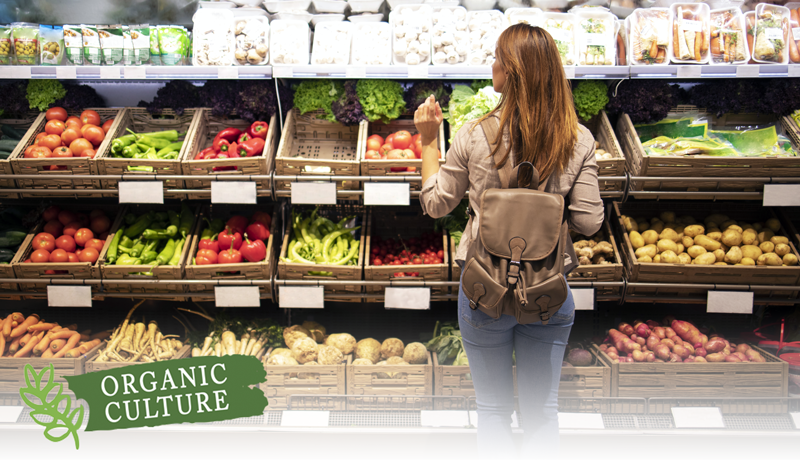Organic food is a hot topic these days. You hear about it everywhere, and if you’re like most people, the idea of organic food sounds great—but what is it? What makes it different from regular food? And who should buy it?
Here are a few things to know about organic food.
What Is Organic Food?
Organic food is produced by methods that preserve the environment, avoid synthetic chemicals and fertilizers, and maintain animal welfare standards. The USDA has strict guidelines for what qualifies as “organic” (which we’ll get into in just a minute), but first let’s talk about why organic food is so trendy right now.
Why Is Organic Food So Trendy?
There are two major reasons why organic food is becoming more popular: health benefits and environmental impact. Many people believe that consuming organic foods can help reduce their risk of developing cancer or other illnesses later in life by limiting their exposure to pesticides and other dangerous chemicals used in non-organic farming. Of course, this isn’t proven science yet—but there’s enough evidence out there to make many people feel safer eating organic produce than non-organic produce
Organic food is all the rage right now, and with good reason!
Organic food is better for you because it’s produced without any chemicals or pesticides. That means organic produce has more nutrients than conventional produce. It’s also free of artificial flavors and colors, which can be harmful to your health.
Because organic food is grown without pesticides or other chemicals, it takes a little longer to grow than conventional food—about 30% longer for many crops. If you’re looking for a quick fix, then organic isn’t for you. But if you care about what’s in your body, then this shouldn’t be a problem at all!
Who should eat organic food? Anyone who wants to keep their body healthy by avoiding chemicals and pesticides! Organic food is best for people who have allergies or sensitivities to certain foods or chemicals.
Organic foods are all the rage these days. But what exactly is organic food? And why do people love it so much?
Here’s the deal: organic food isn’t grown with pesticides or fertilizers, and it’s not genetically modified. That means that you can eat organic food without worrying about harmful chemicals in your body, which is pretty great! It also means that you’re eating plants that haven’t been altered in any way—you know they’ll be natural and healthy.
You might be wondering if organic food tastes better than regular food. The answer is yes! Organic foods are grown at a slower pace than conventional foods, so they have time to ripen fully before they’re harvested. This means they have way more flavor than their non-organic counterparts! You might even notice a difference when you first bite into one of these fruits or vegetables.
Who should eat organic food? Anyone who wants to keep their body safe from harmful chemicals should consider eating organic foods regularly. If you have children or pets, especially young ones who still rely on milk for nutrition (pets can’t drink milk unless it’s organic), then there’s really no excuse not to buy all your groceries from an organic market.
Organic food is food that hasn’t been treated with pesticides and other chemicals. It’s also grown without the use of genetically modified organisms (GMOs). Organic food is often perceived as better for you and the environment, but there are many reasons to choose organic over conventionally-produced foods.
Organic food offers a number of benefits:
- It’s better for you: Organic produce contains more vitamins, minerals, and antioxidants than conventional produce. It’s also free of synthetic pesticides or fertilizers which can cause allergies and other health concerns.
- It helps keep our planet healthy: Since organic farms don’t use synthetic pesticides and fertilizers, there’s less runoff into our waterways which can harm fish and wildlife.
- It tastes better: The process of growing crops organically results in tastier fruits and veggies!

